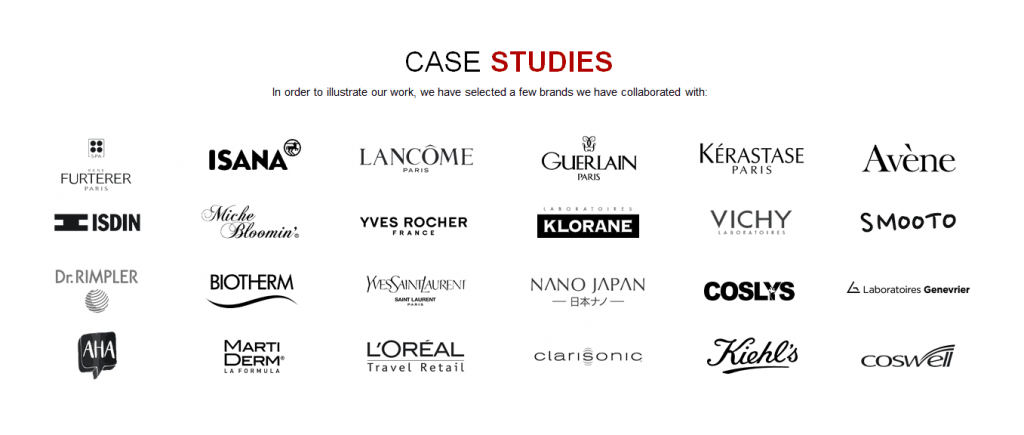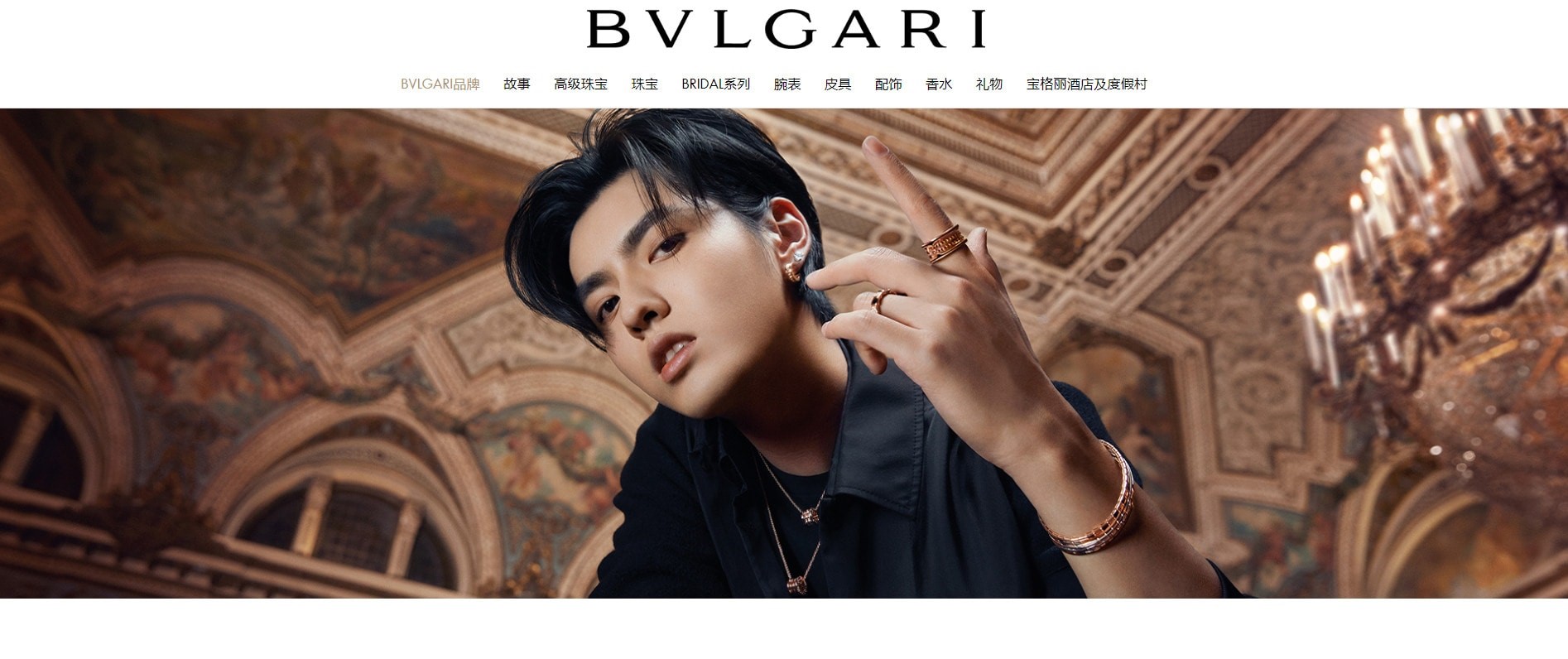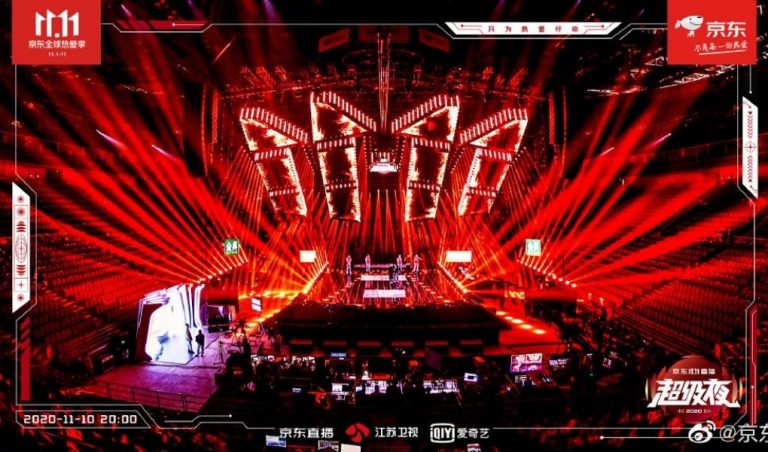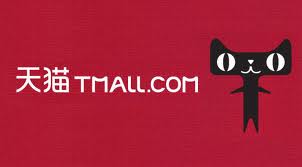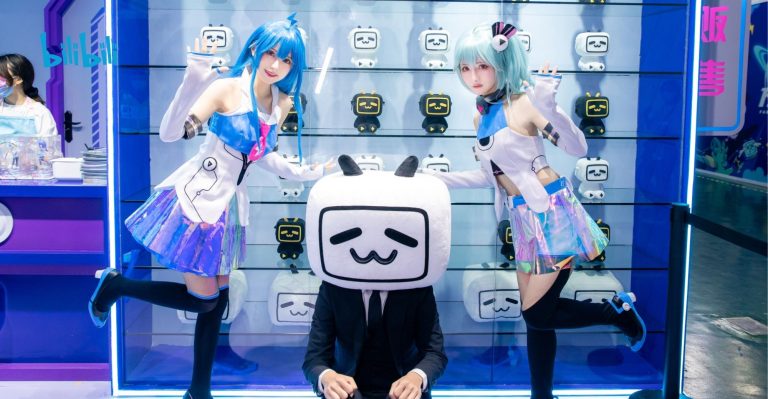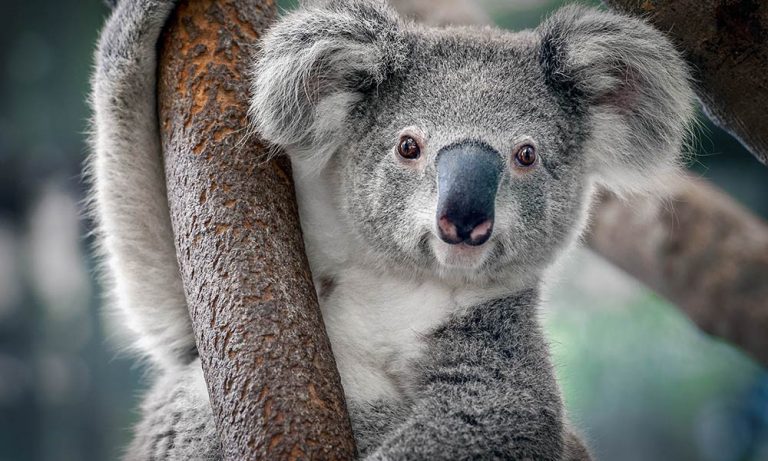All foreign brands interested in entering Mainland China with their products at a certain point come to a decision of selling through Chinese e-commerce platforms, as this is the most common and profitable way of selling anything in the Chinese market. While researching the platforms, the main online marketplace that will always show is Tmall, the biggest B2C e-commerce platform from Alibaba Group.
There are different ways to sell on Tmall, including having its own flagship store, working with distributors, or selling through Tmalls’ cross-border sub-platforms Tmall Global. But is Tmall good for any foreign brand? What should a brand owner do to sell on Tmall or Tmall Global platform? Let’s find out.
Need a cost effective TP (Tmall Partner) to sell in China?
We are an Official Tmall Partner e-commerce Agency. Our Services: E-Commerce, Search Engine Optimization, Advertising, Weibo, WeChat, WeChat Store & PR.
What is Tmall? Why is it important for brands?
Tmall is the biggest B2C (business-to-consumer) platform in China. Tmall was launched by Alibaba Group in 2010 and since its creation is the number one online sales platform in the country. This e-commerce platform operates in Mainland China, Hong Kong, Macao, and Taiwan.
Tmall enables brands to sell their products and services directly to consumers in China. As opposed to Taobao which has problems with counterfeiting products, Tmall assures its customers of product quality, accepting only well-known merchants with a firm presence in the Chinese market. It works on an invitation basis, which makes the platform known more as a premium brand marketplace.
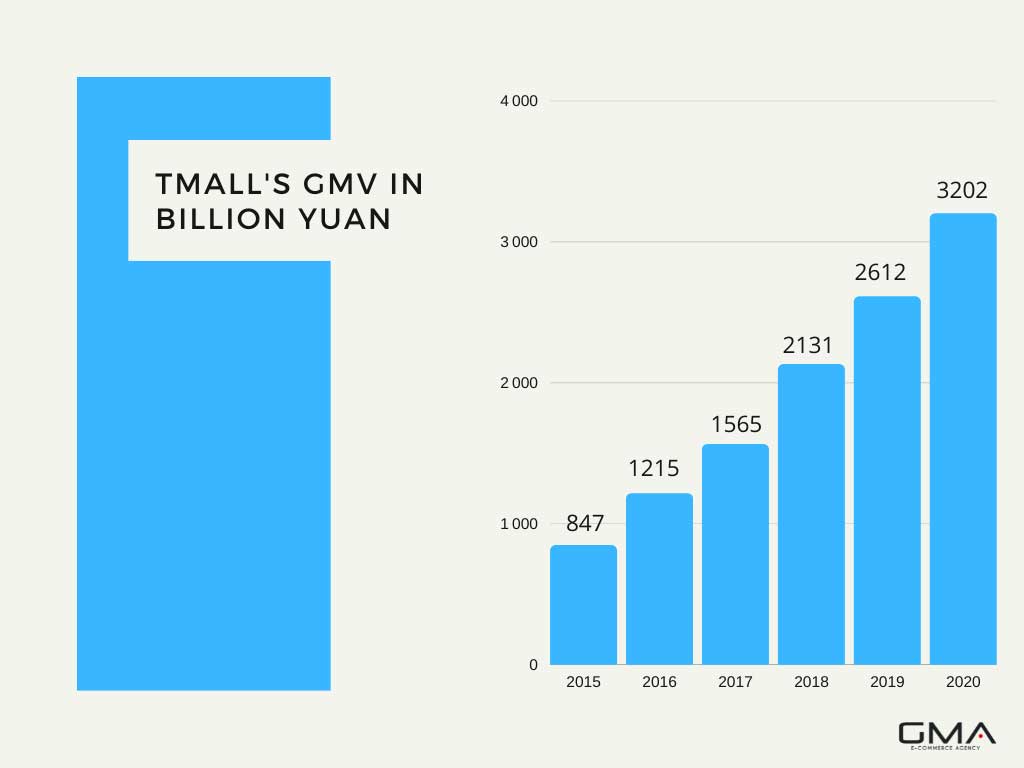
What kind of opportunities does Tmall offer?
Being a general marketplace, it offers consumers all kinds of products from over 100,000 brands. Authorized domestic and foreign brands and retailers are present on Tmall through the creation of the Tmall store or Tmall Global store graphically customizable. This allows brands to successfully promote their identity and allows them to create a very accurate user experience.
This, however, implies that once registered on Tmall, the supplier should take care of his Tmall flagship store (or Tmall Global flagship store). It requires the management of customer service (including Chinese language customer support), promotion of the brand and its products, and delivery of goods (for foreign brands it also means taking care of Chinese international customs).
Tmall helps brands with all these tasks, especially when it comes to the delivery and customer service of foreign goods coming from outside of China. But it doesn’t mean that a foreign brand can just start a store and then it will be taken care of. It requires investment in people and time to manage those shops.

Our team of experts at Gentlemen Marketing Agency can help you deal with all the things related to Tmall, we are a Tmall partner.
Selling online in China can be a challenge if your brand is unknown. There are a lot of factors that can affect brand sales on Tmall, branding is one of them. If your brand is unknown, Chinese consumers will hardly buy your products. In fact, unknown brands are not eligible to sell their products on Tmall.
Due to these reasons, a multichannel marketing campaign can help you to build branding, increase sales and reach your goal in the Chinese market. If you’re looking for a digital marketing Tmall agency specializing in the platform, Gentleman Marketing Agency is your choice.
What kind of brands are suitable for Tmall?
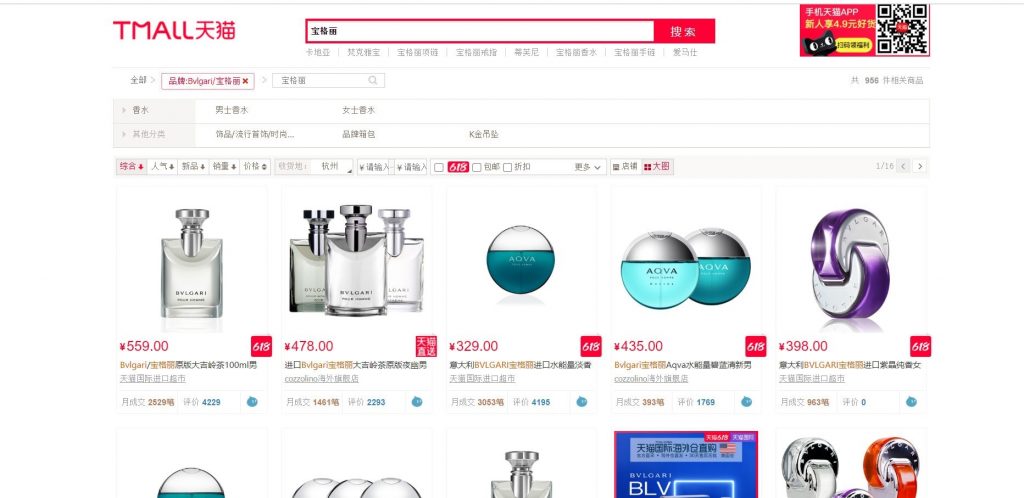
Not every brand can get on Tmall because it prefers brands that already have some awareness in the Chinese market. Therefore, new brands cannot simply launch their stores on Tmall just because they want to.
There’s an extensive application and verification process, and if your brand has no brand awareness then the GMV will be very low because it takes a while to allow customers to feel comfortable with a new brand.
Most of the brands entering Tmall are Chinese companies and international brands with an established presence in China market. Those are usually big brands that can afford the investment in Tmall (it’s the most expensive marketplace in China) and know that they will get a good ROI due to the fact, that they are already known to the Chinese audience and will answer to Chinese consumers booming appetite for their products.
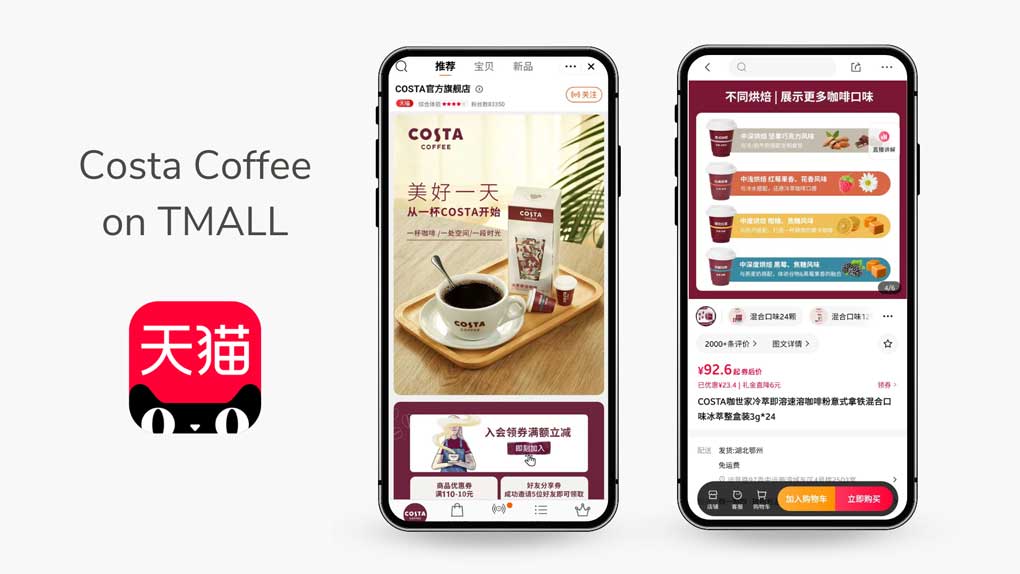
How can brands build awareness in the Chinese market?
Before launching on Alibaba’s Tmall platform, brands have to take a serious look at their subcategory and where they fit in the Chinese market. Brands with no brand awareness amongst Chinese consumers should invest in branding for at least a year before selling on Tmall.
Many brands often work to develop their digital marketing strategies to build brand awareness in China before they officially launch a store on Tmall. For example, the Italian brand Bvlgari is present on Chinese social media, like Wechat, Weibo, and Xiaohongshu, and on the Chinese Zhihu forum, has a Chinese site on Baidu, collaborates with KOLs, but does not have its own store on Tmall.
To sell on Tmall you need branding
Branding in China is the key. In China, more than everywhere else, the reputation of a brand is what will make the difference. Chinese consumers don’t trust new brands and are not risk-takers, resulting in a very low conversion rate. Therefore, building brand awareness should be the base of your marketing strategy.
Selling online in China can be a challenge for unknown brands. To increase your conversion and ROI, brands should level up with an Omni-Channel marketing strategy.
Build a presence on Baidu
Baidu is the dominant Chinese search engine, and it is the equivalent of Google. The difference between them is that Baidu controls most of the search market in China. Baidu is the first place that Chinese consumers check for information about brands (just like we do on Google), and therefore it’s very important to take care of good Baidu SEO and SEM strategy in order to rank high in search results and be noticed by Chinese people.
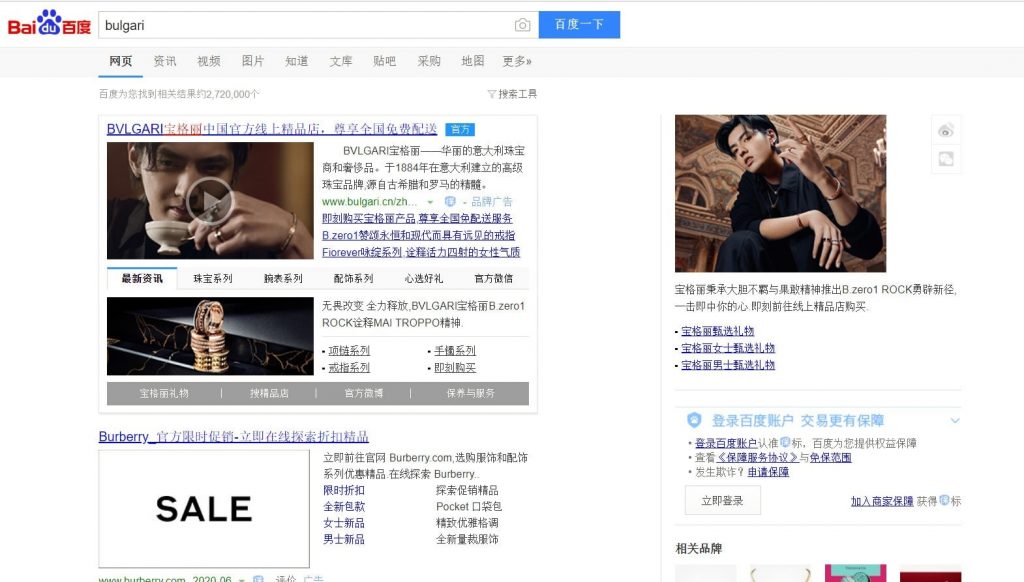
There are many ways to do it, but the most efficient ones for international businesses are; having their own website hosted in Mainland China and participating in forums and Baidu communities.
Localized website for China
To reassure a Chinese buyer, bring him to understand the value and quality of your products and therefore to trust your brand, your website should follow some rules:
- It should be in Mandarin because it is easier and more reliable for Chinese people
- It should have localized content and design (for example, Chinese people love multicolor and full of information websites)
In addition to rank on Baidu, your website needs to:
- be hosted in China
- get ICP license
- be in Mandarin because Baidu knows only Mandarin and gives priority to Mandarin websites hosted in China.
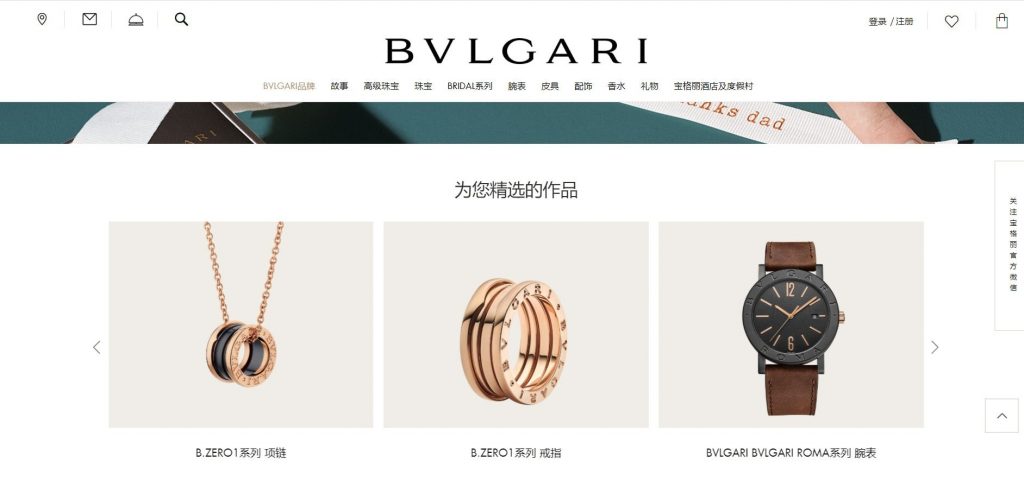
Be aware that websites in China are not for generating sales. Chinese people don’t purchase products on websites dedicated to each brand, but go to marketplaces like Tmall, where they can compare different products from different brands, use their Chinese bank account to pay using Alipay, and more.
Your website in China serves as a hallmark of your brand, and it assures Chinese consumers that you are a real company and they can trust you. Therefore, you should always include all the important information about your brand with links and QR codes to your Chinese social media accounts and e-commerce stores.
PR and online forums
You should put efforts into PR, use forums (Zhihu) and collaborate with KOLs (Key Opinion Leaders) to increase credibility and let others talk about you, creating a word-of-mouth strategy. In China it works a lot because KOLs and communities are powerful and widely listen to the Chinese internet, in fact, their opinion matters the most.
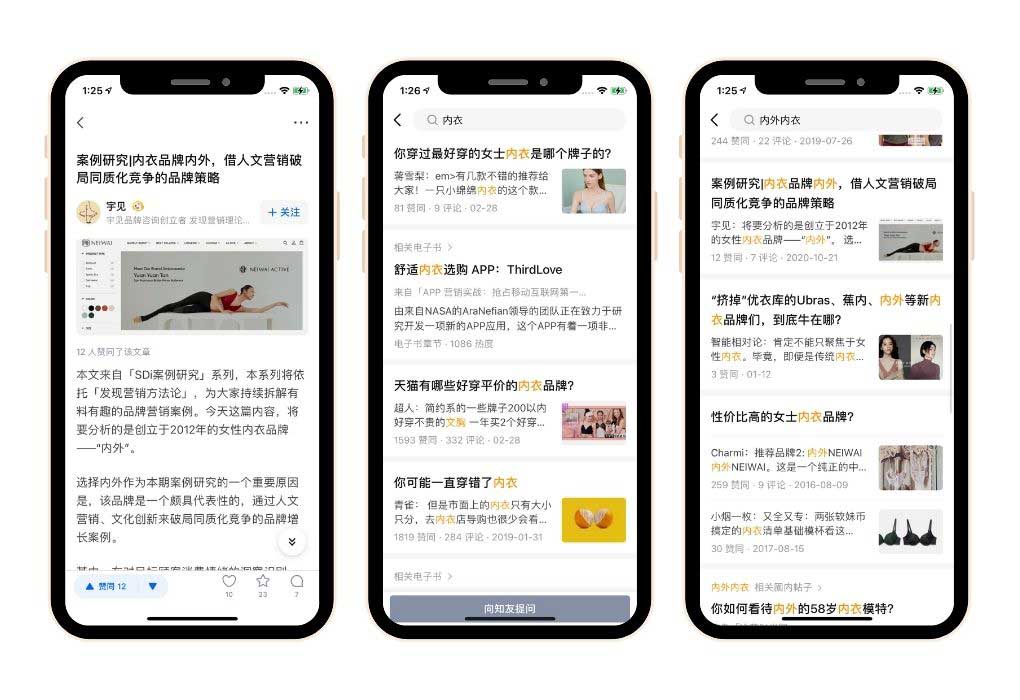
Social media marketing
WeChat, Weibo, Douyin, and Xiaohongshu are the most used social network in China which can help you to build a strong reputation.
- Weibo has the widest reach for influencers because it’s more of a public platform. Celebrities and KOLs with their live streaming play an important role in this platform as they can help you engage followers.
- WeChat, on the other hand, prevents strangers from following and viewing user profiles if they are not connected. By the way, it is the most used social media in China and it offers you the opportunity to sell your products directly in the app through mini-programs. It’s the most diverse platform and a definite must in China.
- Douyin is a short video app, an innovative social network that is very successful in China. Now it also offers a live-streaming function and its own marketplace, which is a good choice for brands targeting young Chinese consumers.
- Xiaohongshu, the social-commerce platform, encourages users to share their personal experiences with products, give tips, and provide discounted information. Here too live streaming works a lot. Xiaohongshu is the must-have platform for all fashion, cosmetics, and travel brands, as this is where Chinese people look for reviews and inspiration from regular users and KOLs.
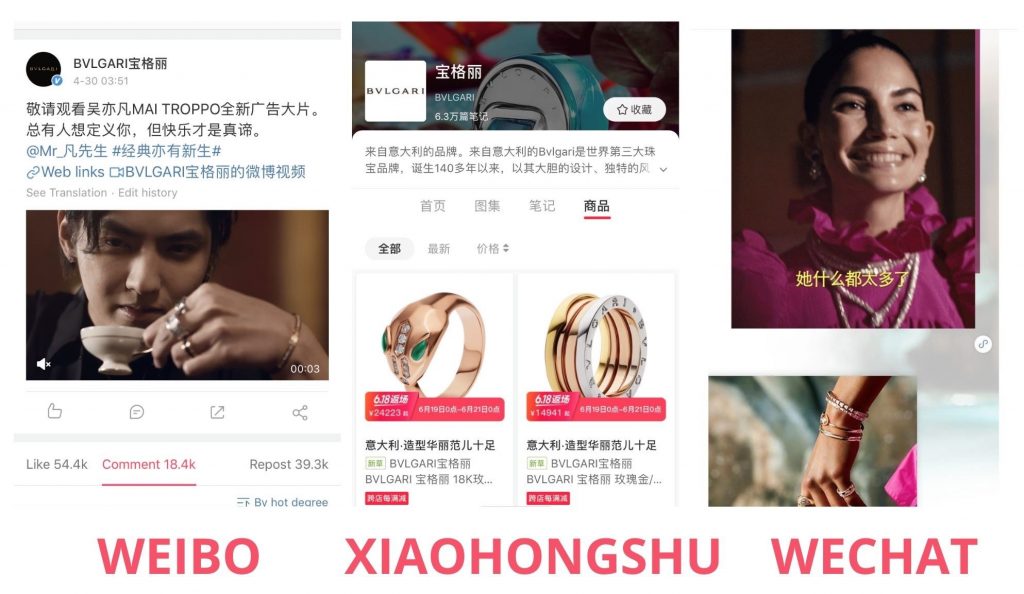
The boom of live streaming
On these platforms, live streaming has become very important for companies to sell products. In fact, these formats are more engaging and interesting and keep the user glued to the screen, because live streaming:
- increases the feeling of “virtual” contact with the host
- offers the possibility to send messages and receive live responses
- Consumers can easily watch the product and how it works in real time, having the possibility to judge whether to buy or not that product
In addition, live streamers are usually influencers that are followed by millions of people, so it’s a very efficient tool for your marketing strategy in China.
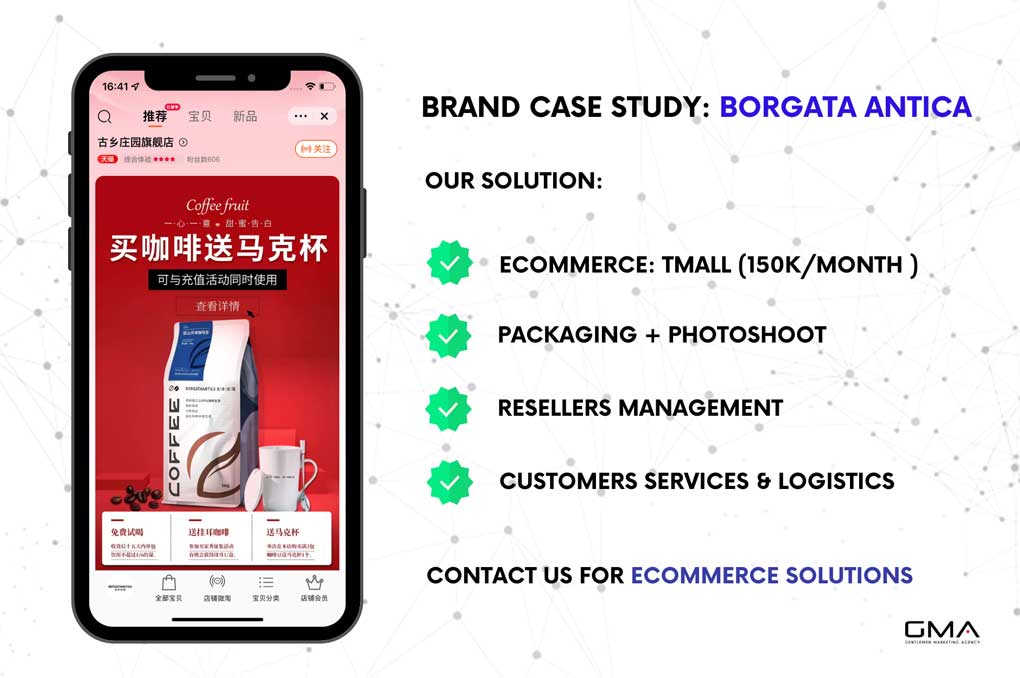
What is the next step? What should brands do if their marketing strategy doesn’t work?
If you have done all of the above processes and found that your brand has some recognition in the Chinese digital ecosystem, your brand may be ready for Tmall and you can consult a TP (Tmall partner) or apply directly through the Tmall English version.
If you have done all of the above processes and found little results for your brand, what you can do is start building brand awareness by working with our digital marketing agency.
We can help you with all the above necessary steps from building a Chinese website to managing social media. Gentlemen Marketing Agency is a certified Tmall partner and we can guide you every step of the way to succeed on the platform.
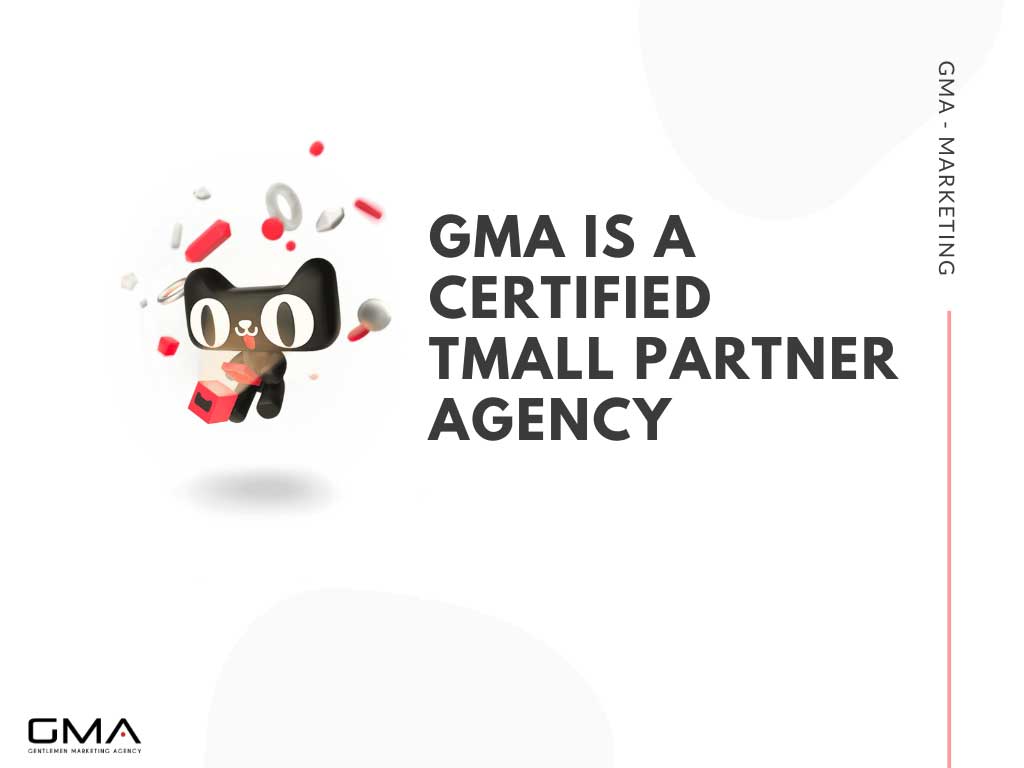
What are other options for selling your products in China?
Those who are determined to create an e-commerce channel can also sell through affiliate channels such as WeChat or existing multi-brand stores on Tmall, and JD.com.
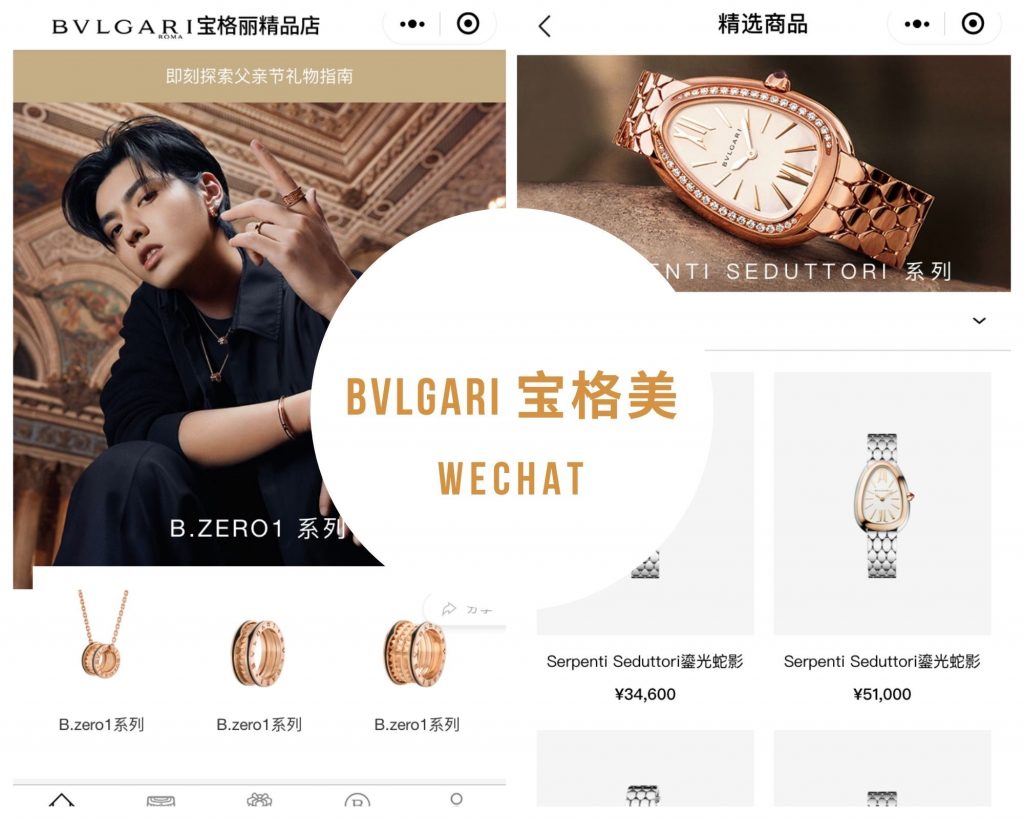
WeChat was created by the Chinese giant, Tencent. At its core, it is a messaging app, but it has so much more to offer. It is the most popular mobile app in the country, on which they all spend hours every day. The app enables companies to create a Wechat official account to promote their company. This is the best way for a brand to:
- create a community
- gain followers
- being actively engaged with them
- sell your products directly on WeChat
WeChat stores are becoming extremely popular, especially among younger consumers. In fact, more than 95% of brands in China have their own WeChat shops. This feature is becoming one of the most dominating within the platform and what is more, having a WeChat store is way cheaper and easier than selling on Tmall.
It’s a great option for all the brands, but especially small ones that want to test the market, as it doesn’t require a big investment and time to make the mini-program work.
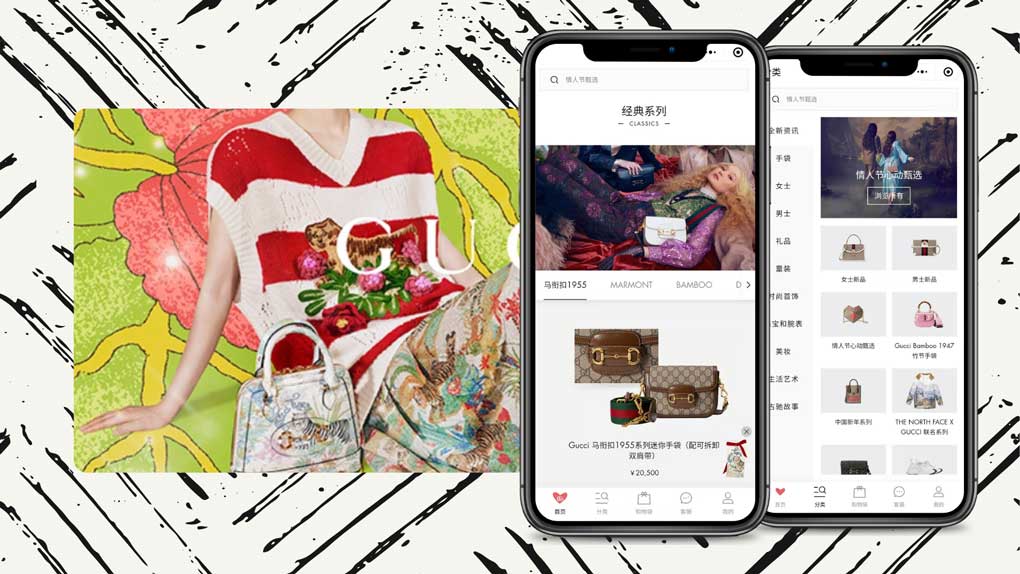
Tmall multi-brand stores
Approaching an existing multi-brand shop on Tmall and asking them if you can sell on their shop could be an option. The downside of this option is that they may charge a very high fee for this (as much as 70% of sales), and you still need to invest in brand marketing outside of Tmall to build brand awareness.
JD (JINGDONG)
Once registered on Tmall, the supplier can take care of his online store. This will give you visibility and credibility with Chinese consumers, but you keep control!
JD, the second most used e-commerce platform in China, on the other hand, would be seen as a simple store offering a lot of products, as JD takes care of everything. So this option is very convenient! Because once your products are exchanged with JD, your role ends there. JD will buy the product in bulk and take care of the remaining tasks.
Therefore it could be a good alternative, but remember that in China branding is everything!
We are your Tmall Agency in China!
Do you want to know more about how to use Chinese e-commerce platforms to boost sales? Contact GMA a digital marketing agency, specializing in the Chinese digital market.
We have more than 10 years of experience and a team of Chinese and foreign professionals that have the know-how needed to succeed in China. We helped over 600 brands, many of them established their stores on Tmall.
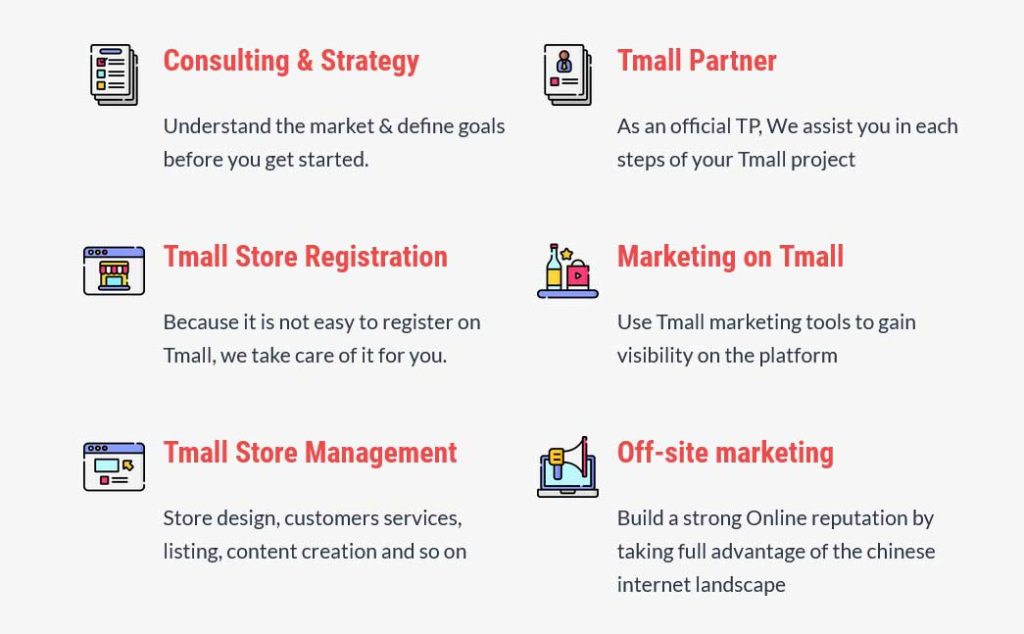
As a certified Tmall Partner, we offer an overall Tmall service, including; Tmall store registration, consulting, store management, branding, marketing, and more. If you want to learn about Tmall and your options in the Chinese e-commerce market, don’t hesitate to leave us a comment or contact us, so that we can schedule a free consultation to present you with the best opportunities for your brand.
